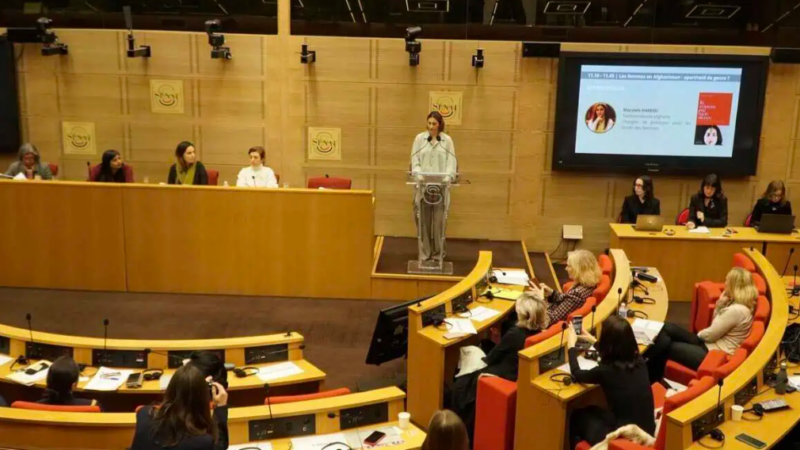Afghanistan citizens against Taliban’s banning formal education

Until the recent takeover school enrolment had been rising consistently since the US invasion of Afghanistan in 2001. However, as things stand now it seems very likely that there will be a drastic slump owing to the Talibans’ hatred for education. Whatever gains democratic and humanitarian forces have made in the last two decades in the proliferation of liberal and modern education for the Afghan population, and particularly for women, it will now be gone. In many places, the Talibans have shut schools and forbidden women from being educated or having jobs.
The changes at Kabul’s university perfectly epitomizes the situation.
The Taliban government recently replaced a PhD scholar with a madrassa graduate as the dean of the Kabul University, one of the very few good institutions in the war-torn country. It chose to appoint as the head of a public educational institution Mohammad Ashraf Ghairat, a former madrassa graduate and teacher, who has a reputation of trying to get journalists killed.
“A spy journalist is more dangerous than a hundred Arbaki (Local Police/Paramilitary).
I doubt the faith of those who restrain from killing journalists. Kill Spy Journalists. Contain Media,” Ghairat tweeted back in June 2020.
The former dean of Kabul University was Dr Osman Babory, a dual-PhD scholar with several publications, articles and journals on Phytotherapy and Pharmacognosy.
Ghairat’s appointment caused waves of shocks in academic and intellectual circles, with as many as 70 people from the Kabul University’s staff resigning in protest against the Islamisation of academic institutions that the appointment signals.
On top of that, Ghairat also said women will not be able to study along with male students.
Female staff at the university asserted that the new conditions were imposed to keep women away from education. Ghairat’s hatred attitude toward women makes him an undeserving candidate for the post of chancellor of the University.
The result of all this is that the Talibans are getting successful in barring women and men alike from getting impartial and science-based education.
However, even Afghan youth, who studied in the UK are being targeted. They are stopped by the Taliban militants on the streets to have their mobile phones checked. According to one Chevening scholar, the situation is critical especially for the newer generation, who have ties with Western countries in terms of education or work, against whom the Taliban have historically been strict.
Under these circumstances, for Afghanistan the future looks bleak, and the past is a marred place also in the area of education.






